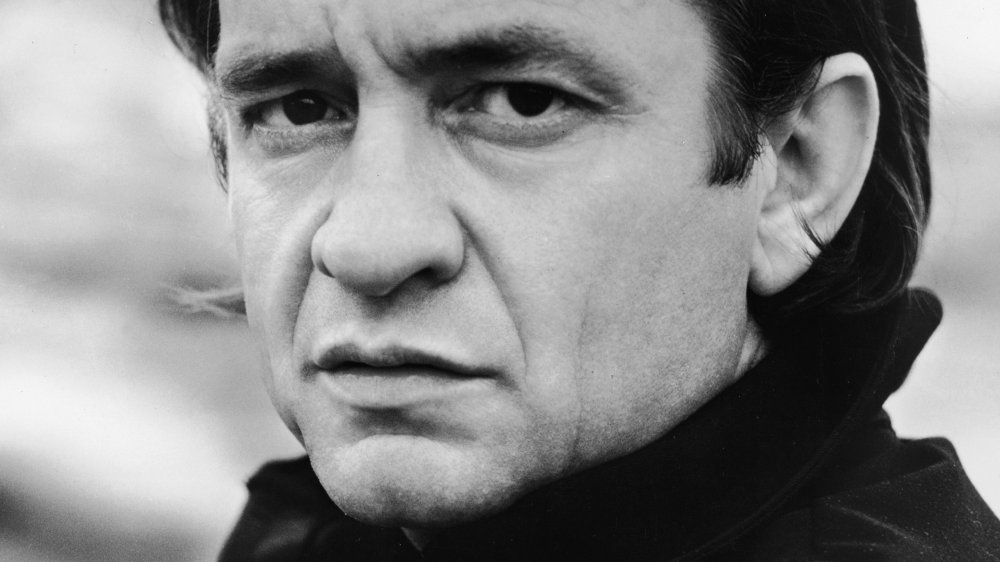The Real Reason Johnny Cash Always Wore Black
First things first: He was actually born J.R. Cash, a compromise for his parents — Mom wanted to call him Rivers – her maiden name; his father, Ray, wanted to call him Ray. The boy ended up with initials instead, and in fact had an older brother called Jack. The Cash who would become Johnny remained J.R. until his Air Force enlistment; the recruiter wouldn't accept J.R., so the new airman became John R. Cash. As for the last name, Sam Philips, the man who produced Johnny's first recordings, thought Cash was just a stage name. But that part was genuine. According to Biography, it was during his military service in Germany that he bought his first guitar, in Öberammergau, and formed a band, the Landsberg Barbarians. It was later on, working with a backing band, the Tennessee Two, that Cash started wearing black shirts, mostly because the group wanted to match on stage and they had black shirts in common in their wardrobes. It wasn't an exclusive look by any means. Cash was often photographed, personally and on stage, wearing a black suit, tie, and white shirt – common enough attire in the 1950s and later. The image took hold, however, and by the 1970s he was wearing all-black attire more consistently, yet never only that.
The black came later
Just as uniforms tell us something about the person we see – police offers, military, clergy, doctors – clothing might not make the man, but they give us an instant, identifiable impression. So it was with Johnny Cash and his black clothing. They became one and the same, to the point that he was regularly referred to as The Man in Black, especially after his 1971 recording of "Man in Black," included on his album "The Man in Black." The song describes the symbolism of the sartorial color scheme: "I wear the black for the poor and the beaten down, livin' in the hopeless, hungry side of town, I wear it for the prisoner who has long paid for his crime, but is there because he's a victim of the times."
Besides the symbolism, there was a practical side as well. Cash's drummer, "Fluke" Holland, told Mojo magazine in 2012, "Back then when we'd leave on tour, the longer you could wear the clothes you had on, the better it was. So if you had on black, it wouldn't show dirt as quickly as anything else."

